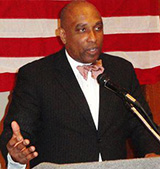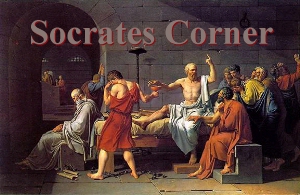On Adam Smith: The advent of modern economics
~ Adam Smith
Biography of Adam Smith
Adam Smith (1723–1790) was a Scottish moral philosopher, innovator of political economy, and primary thinker of the Scottish Enlightenment. Smith is celebrated for two classic works: The Theory of Moral Sentiments (1759), and An Inquiry into the Nature and Causes of the Wealth of Nations (1776). The latter work is also known as The Wealth of Nations, and is his greatest work and considered the first modern treatise on economics. Smith is considered the “father of modern economics” and even today is considered one of the greatest economic philosophers in history.
After his studies in social philosophy at the University of Glasgow and Balliol College, Oxford, Smith gave a number of well-received public lectures at the University of Edinburgh. Soon thereafter Smith acquired a professorship at Glasgow teaching moral philosophy, and during this period wrote and published his first book, The Theory of Moral Sentiments (1759). Smith was very widely traveled and later in his career accepted a tutoring position which afforded him the opportunity to travel throughout Europe. It was during these eventful travels that he encountered other intellectual leaders of the Age of Enlightenment and solidified his views on moral philosophy and economic theory.
Adam Smith was close friends with fellow Scottish philosopher, David Hume, whose ideas on moral and economics theory he had in common. Influenced by his teacher Francis Hutcheson, Smith held a Stoic rather than an Epicurean worldview where he learned the spectator theory of virtue. This theory is a method of psychological naturalism whereby morality is defined as a form of pleasure where the spectator is an observer of virtue in progress. While the object of the spectator’s pleasure is moral, the agent’s motive of consciously conforming his worldview to benefit one’s family and friends, and the societies to which one belongs, while concurrently being grateful to one’s benefactors is a moral objective that leads to maximizing society’s economic efficiency.
Smith established the fundamentals of classical free market economic theory. The Wealth of Nations was a forerunner to the modern capitalism. In this magnum opus and in other writings, Smith used basic logic to explain and analyze how pure, rational self-interest and competition are always precursors to economic success regardless of genealogical pedigree, class or societal barriers.
Adam Smith and Political Economy
Philosophers and politicians from ancient times have conversed about economics, however the ancients usually considered economic prosperity as secondary to other values of the State, such as a strong central government or the conquering of nations to secure more domains. The singular contribution of Adam Smith’s economic treatise The Wealth of Nations in 1776 was that he lifted economics from the ancient Greeks like Plato and Aristotle and unshackled economic theory from the class-obsession and cronyism of the mercantilism during feudal times, and brought it into the modern age. Smith and subsequent economists concentrated on how the economy works most proficiently for the most people, however, there was always an underlying synthesis between economics and morality (Smith called this phenomena “the invisible hand” to describe unintended social benefits resulting from individual actions). Smith contended that the most efficient economy was a free-market economy that functioned with minimal government intrusion. When England, colonial America and other nations started to apply Smith’s lassiez faire economic theories to public policy, these economies exploded exponentially.
In modern times, people mistakenly think that all governments are generally benign and work to enact efficient economic policy for the masses. This historically cannot be true because of the intractable paradox when diverse populations of society demand different things. In other words, can government be all things to all people? What about the ‘law of unintended consequences’ where governments try to fix one problem yet causes many other problems to arise? The legendary economist Milton Friedman, whose economic policies President Reagan used to foster 25 years of tremendous economic growth called the “Conservative Revolution,” traced his intellectual linage directly to Adam Smith. Friedman theorized that while Smith’s ideas on capitalism were in theory economic perfection, in actual practice the free market would never be truly free due to government interference, over regulation and competing economic theories (e.g., Marxism, socialism, communism, liberalism, progressivism, fascism, etc.).
History of course has demonstrated that to the degree that statist or totalitarian governments interfere with the free market is the degree that the nation’s economic efficiency will be detrimentally impaired, even destroyed. In other words in the paradigm of a democracy (“mobocracy”), where politicians who used socialist/progressive policies to ‘fix’ the economy in order to appease angry voters admittedly knew very little about capitalism and thus became prey to Marxist class warfare tactics which politicians have historically used to takeover and deconstruct America’s Judeo-Christian traditions, to systematical pervert institutions founded under the U. S. Constitution, Natural Law and Natural Rights. Thus, where capitalism is replaced by Progressivsm, Liberalism, Socialism or Marxism, economic freedom quickly devolves into economic dependency and welfare slavery.
The Wealth of Nations
The Wealth of Nations (1776) is a systematic, comprehensive, and magnificent criticism of the feudal mercantile economy that governed economic policy in England and throughout Europe from the Middle Ages to Smith’s time at the end of the Age of Enlightenment. Smith chronicles the development of mercantile principles from the fall of Rome, through feudal times, and into the age of commerce to the dawn of the Industrial Revolution. Smith widely traveled throughout Europe where he personally witnessed severe poverty and saw how such dire economic conditions encouraged many of the poor to immigrate to America. The Wealth of Nations combines logical observations of the market with rudiments of moral philosophy and policy endorsements which was much more than a dry, academic critique of mercantilism, but was an innovative discourse on economics which 240 years later remains an essential and foundational classic of economic philosophy and policy.
Books I and II analyze and explore the notion of the division of labor, explaining how this separation improves to the standard of living to all citizens by creating free markets by which free exchange of goods and services can be enjoyed within society by everyone. The division of labor likewise expands technical and scientific innovation by placing a strong emphasis on creative freedom, on necessary vocations, and permitting workers to brainstorm economic strategies to make these vocations more efficient as technology changes. Thus, maximizing efficiency leads to greater surpluses and economic growth. “Surpluses,” Smith writes, “may be either traded or re-invested. In the latter case, technologies are likely to improve, leading to even greater efficiencies.”
Book III analyzes the economic health of England in the 1700s contrasted with the background of the general development of society which according to Smith’s view starts with hunting and gathering societies and progresses through agricultural periods to reach a state of international commerce. According to Smith, the fall of Rome and the rise of feudalism delayed this development by creating a system of reduced efficiency. Book IV presents a systematic critique of what Smith calls the “mercantile commerce” that defined much of his European travels. Smith’s first major critique of mercantilism is that it conflates value and wealth with prized metals like silver and gold. Smith thought that the authentic measure of the wealth of a nation is the flow of goods and services from a nation’s output. In emphasizing this issue, Smith creates the term of gross domestic product [GNP], a major idea in modern economics. The wealth of a nation is augmented not by the mercantile feudalism of hoarding gold and silver, but by growing the existing productivity by expanding the market – by increasing free trade and removing government strictures, excess taxes and regulation. Echoing Adam Smith’s economic theories, JFK in 1960 once said that, “A rising tide lifts all boats.”
A prevailing leitmotiv that continues throughout the work is the understanding that an economic system is spontaneous, and, when the shackles of governmental interference are removed a nation’s economic growth with considerable freedom, will be capable of regulating itself. Smith called this idea the “invisible hand.” The capability to self-regulate and to guarantee maximum efficiency, yet, this economic freedom is constantly endangered by monopolies, confiscatory taxation policies, lobbying groups, and other “privileges” given to connected constituencies of the economy to the extreme detriment of others. In conclusion, in The Wealth of Nations, Smith summarizes what he understands to be the proper powers of government, specifically defense, justice, the creation and preservation of public works that benefit the commerce, education, the maintenance of the “dignity of the sovereign,” – policy powers that are to be supported by fair and limited taxation.
Adam Smith in modern times
If Adam Smith were alive in the twenty first century how would he consider the economic situation of the United States? Of Europe and the rest of the free world? Firstly, Smith would disapprove of today’s hydra-like flourishing of monopolies, and undercapitalized or fraudulently managed companies, which using corporatism and cronyism tactics manipulate the market to evade fair dealings and competition. Smith foresees an economic structure categorized by comparatively small producers competing with each other in the marketplace. Nevertheless, a perversion of Smith’s capitalist ideas have existed now for over 100 years in America and throughout Europe where post-industrial, progressive politicians combine Marxist/socialist ideas with corporatism or cronyism-based links to government largess and political power. Therefore, instead of promoting economic innovation and an expansive market share for new-arrived businesses, socialist and progressive politicians rewards those companies (usually mega-corporations who can afford lobbyists to bribe them in Congress) who use this unconstitutional access to immediately seize a majority market-share while crushing all would-be competition. Thus, instead of laissez-faire capitalism – the policy of letting things take their own course, without government interference, we have today small oligarchies, corporatism, and corporate socialism where fascist governments use the power of the economy to control and manipulate society for its own ends.
Secondly Smith would certainly criticize the number and undue influence of lobbyists in the American political structure. We find time and time again in The Wealth of Nations that Smith is very critical of “factions,” or special interest groups that manipulate power in order to sway the legislative branch to regulate actual sectors of the economy in their favor. This interference with the free market Smith argues causes inefficiency and destroys the natural equilibrium in the capitalist structure, thereby producing a dysfunctional economic environment and a less efficient delivery of resources. The third economic change that Smith would have criticized in modern times is the increasing importance of conspicuous consumption. While free market capitalism has led to the division of labor and the growth of the market thus leading to a higher quality of living for infinitely more individuals, those same people as a result demand more leisure time while spending higher proportions of their income on consumable goods, rather than on investments and savings.
This is the major reason why the year 1776 not only let to colonial America declaring her independence from the tyrannical government of England’s King George III, but was also the year Adam Smith published his magnificent opus, The Wealth of Nations. The enduring legacy of Adam Smith was to unleash the free market, establish economic efficiency and promote lassiez faire capitalism where each person regardless of education, legacy or class pedigree can with hard work and with industry and innovation climb the economic ladder of success literally from nothing.
The fact that historically in America millions and millions of people have achieved economic success applying capitalist principles belies the horrible tragedy that has occurred since 1900 which during the Progressive Revolution, new and regressive theories of economics (Marxism, communism, socialism, and liberalism) sought to make everyone equally miserable under the collectivist control of a centralized, government called the State. President Barack Obama is scrupulously following the progressive/socialist policies of his predecessors like Woodrow Wilson (1913-21), Franklin Delano Roosevelt (1933-45), Lyndon Baines Johnson (1963-69), who all followed socialist economic policy popularized by English economist, John Maynard Keynes who infamous once said: “By a continuing process of inflation, government can confiscate secretly and unobserved, an important part of the wealth of their citizens.” Historically, how do fascist governments like Mussolini’s Italy, Hitler’s Germany, Lenin and Stalin’s Soviet Union, and Obama’s America “confiscate… the wealth of their citizens”? By stealing through promiscuous printing of currency and by employing the evolutionary atheist economics of Karl Marx ‘redistribution of wealth’ which I call Socialism Slavery.
Only a return to capitalism economic policies of Adam Smith which are thoroughly based on the Bible, morality, Natural Law, and Natural Rights can America climb out of the abyss of economic recession and debt which is over $200 trillion dollars. A debt that will destroy America and capitalism which Marxist and Progressive American presidents have tragically used for over 100 years to keep the economic destiny of millions shackled in the slave chains of Socialism.
*N.B.: This essay is based in part on ideas from Encyclopedia Britannica Great Books of the Western World, Robert Maynard Hutchins, Editor-in-Chief (University of Chicago, 1952), Vol. 2, Chap. 32 – Habit; Vol. 3, Chap. 99 – Wealth; Vol. 39 – Adam Smith.
Ellis Washington is a former staff editor of the Michigan Law Review and law clerk at the Rutherford Institute. He is an adjunct professor at the National Paralegal College where he teaches Constitutional Law, Legal Ethics, Contracts and Advanced Legal Writing.
A founding board member of Salt and Light Global, Washington is a co-host on “Joshua’s Trial,” a radio show of Christian conservative thought.
A graduate of John Marshall Law School and post-grad work at Harvard Law School, his latest law review articles include: “Nigger Manifesto: Ideological Racism inside the American Academy” (forthcoming) and “Social Darwinism in Nazi Family and Inheritance Law.”
Washington’s latest book is a 2-volume collection of 230 essays and Socratic dialogues – “The Progressive Revolution” (University Press of America, 2013). Visit his new law blog, NiggerManifesto.com (formerly EllisWashingtonReport.com), an essential repository dedicated to educating the next generation of young conservative intellectuals.
 © Copyright 2015 by Ellis Washington
© Copyright 2015 by Ellis Washington
http://www.renewamerica.com/columns/washington/150207
Category: Commentary







Outstanding essay.